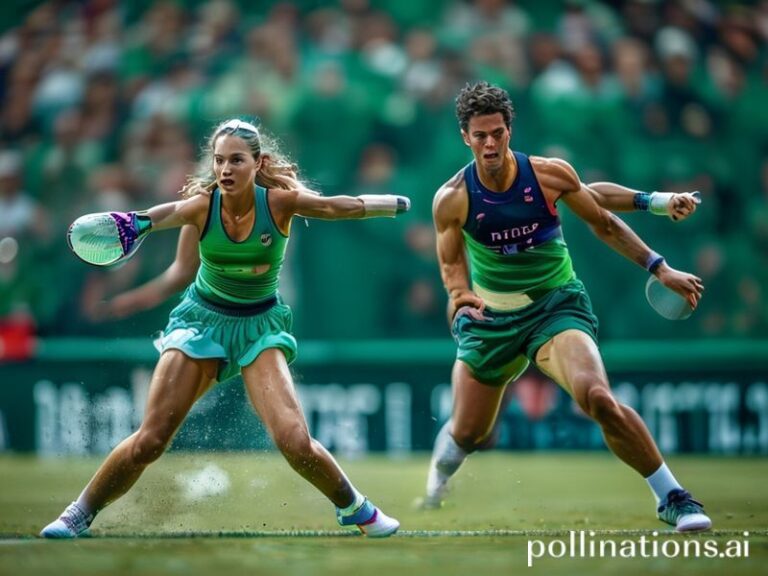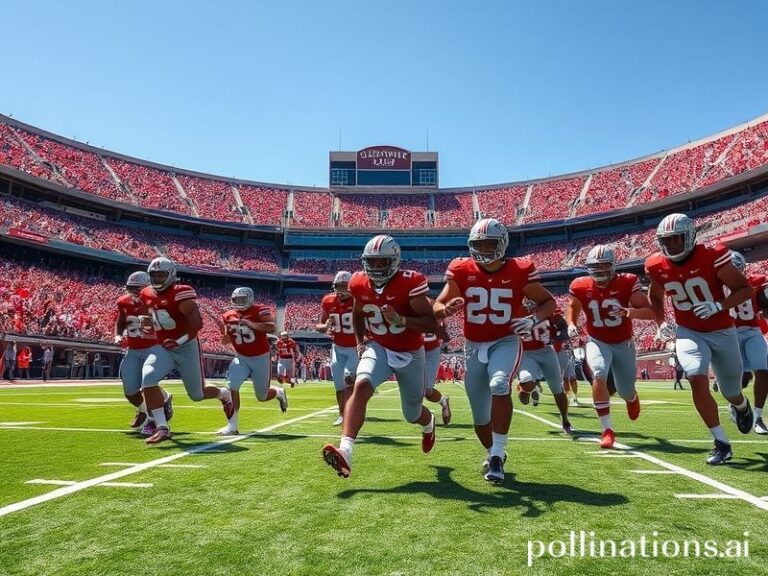kurt zouma
Kurt Zouma and the Cat Heard ’Round the World
A dispatch from the frontline where football, felines and global outrage collide
By the time the grainy Snapchat clip reached Jakarta, the cat had already achieved what most UN envoys only dream of: unanimous, cross-continental condemnation. In a split-screen universe where grainy war footage from Mariupol competes for thumb-time with slow-motion cheese pulls, a West Ham centre-back drop-kicking his pet across a kitchen somehow hijacked every algorithm from Lagos to Lima. Thus did Kurt Zouma—until that moment famous primarily for not being his brother Yoan—become the planet’s newest geopolitical metaphor.
France winced first. Le Monde ran a think-piece on “la violence ordinaire” hidden in les banlieues, conveniently ignoring that the banlieue in question was a £2 million gated pile in Essex. The French Football Federation issued a statement about “valeurs républicaines,” apparently forgetting that its own 1998 World Cup celebrations featured a cockerel being chased around the Champs-Élysées. Meanwhile, across the Channel, the RSPCA—an outfit that normally needs three weeks to notice a starving horse in a Tesco car park—mobilised faster than the Royal Navy, seized the cat and launched a prosecution that carried the full theatrical weight of the Crown. Britain, a country that still allows grouse to be shot for sport, suddenly discovered the moral high ground smelled faintly of Whiskas.
Over in the Gulf, where Qatar’s World Cup stadiums were reportedly built by workers whose passports had gone mysteriously missing, the Al Jazeera ticker labelled the incident “shocking.” The irony was left to ferment in the 40-degree heat. Saudi sports channels—fresh from bankrolling Newcastle United with money that definitely never touched a bone-saw—ran panel discussions on “ethical role models,” each pundit wearing a thobe whiter than his conscience.
Asia took a slightly different angle. In China, where dog-meat festivals still make the occasional cameo on state TV, Weibo users performed Olympic-level mental gymnastics to condemn a cat-abuser while simultaneously ordering spicy rabbit-head takeaway. South Korea’s largest animal-rights group, having just rescued 2,000 dogs from a slaughterhouse, offered to re-home the Zouma cat “in a democratic country.” The cat, now named “Al-Khair” by a Malaysian NGO, was last seen wearing a keffiyeh-patterned neckerchief on Instagram Live with 1.3 million followers and an endorsement deal for halal pet treats.
FIFA, ever alert to optics when not busy counting unmarked bills, added the incident to its 2023 “Global Framework for Athlete Behaviour”—a glossy PDF that joins the towering stack of other FIFA frameworks nobody has ever read. UEFA floated the idea of banning Zouma from European competitions, then remembered he plays for West Ham and quietly let the matter slide. CONMEBOL, not to be outdone, announced a continent-wide campaign urging footballers to adopt veganism, sponsored by a Brazilian agribusiness conglomerate currently torching the Amazon.
The economics were delicious. West Ham’s shirt sponsor, a crypto-exchange that vaporised $3 billion the following month, saw ESG investors threaten to pull out unless the club donated “six figures” to animal welfare. The club duly complied, paying the sum in three monthly instalments—coincidentally matching the schedule of Zouma’s weekly wage. Bookmakers slashed odds on the first “Cats Lives Matter” protest pitch-invasion, while a Silicon Valley start-up pitched an NFT of the cat’s surprised face, minting 10,000 editions at 0.2 ETH each. They sold out in 12 minutes. Two weeks later the founders rugged the liquidity pool and bought actual lions on the dark web. Circle of life.
And what of the man himself? Zouma issued an apology video that looked like a hostage proof-of-life reel, complete with beige wall and soft-focus lighting. He was sentenced to 180 hours of community service—roughly the time it takes to watch one full season of Premier League VAR checks. Ever the professional, he completed the hours at an animal shelter, where staff reported he was “surprisingly gentle” with the cats, presumably because they were now potential character witnesses.
So here we are, citizens of a planet where a single act of feline assault can unite 195 nations in performative outrage while those same nations can’t agree on carbon emissions. Somewhere in east London, a cat sleeps on a heated windowsill, blissfully unaware that it has become the UN’s most effective soft-power asset since K-pop. Humanity, meanwhile, scrolls on—horrified, amused, and secretly relieved that at least this time the collateral damage had four legs and nine lives.







